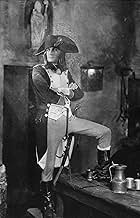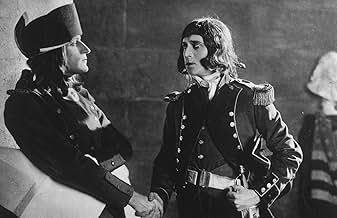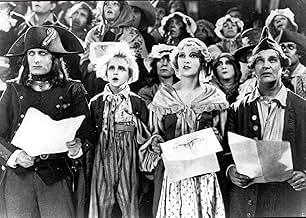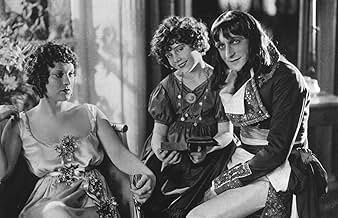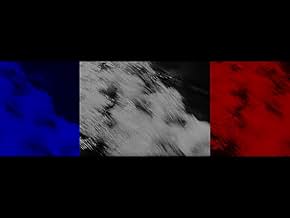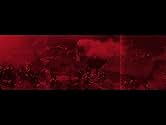AVALIAÇÃO DA IMDb
8,2/10
9,5 mil
SUA AVALIAÇÃO
Um filme sobre a juventude do general francês Napoleão e o início da carreira militar.Um filme sobre a juventude do general francês Napoleão e o início da carreira militar.Um filme sobre a juventude do general francês Napoleão e o início da carreira militar.
- Prêmios
- 4 vitórias no total
Nicolas Roudenko
- Napoléon Bonaparte enfant
- (as Vladimir Roudenko)
Max Maxudian
- Barras
- (as Maxudian)
Avaliações em destaque
... and remarkable even in it's current, truncated form. The film details the early life of Napoleon Bonaparte (Albert Dieudonne), from his unpleasant childhood in boarding school to his early military life during the French Revolution and the subsequent Reign of Terror, through to his first military victories and marriage to Josephine (Gina Manes). Also featuring Annabella and Abel Gance as Saint-Just.
Gance seems to have taken note of every cinematic technique of the previous 30 years of the medium, combining them all into a breathtaking, exhaustive epic that transcends the time of it's making while being wholly of it, as well. This could not exist with such strength as anything but a silent film, I feel, as the reliance on visual stimulus forced Gance into finding new and exciting ways to express emotion and mood. His early use of montage editing and super-imposition of imagery is stellar. The use of handheld cameras adds to the immediacy of the revolutionary scenes, conveying a newsreel touch that seems far advanced from other films of its day. The sets and costumes are very impressive, as is the cast of thousands. Dieudonne resembles Olivier's Richard III more than any other screen Napoleon that I've seen, but it works, and I wonder if this is the image I'll conjure in the future when thinking of the French military genius.
This movie has a storied existence, with multiple running times and edits throughout the decades. Gance's original version is said to have run over 9 hours, but subsequent edits ran as short as 115 minutes (the 1929 US release). Noted British film historian and preservationist Kevin Brownlow has made it his life's work to try and restore the movie as closely as possible to Gance's original vision. The version that I watched was the recently released BFI version, supervised by Brownlow, and it ran 333 minutes, or about 5 and a half hours. It's definitely a must see.
Gance seems to have taken note of every cinematic technique of the previous 30 years of the medium, combining them all into a breathtaking, exhaustive epic that transcends the time of it's making while being wholly of it, as well. This could not exist with such strength as anything but a silent film, I feel, as the reliance on visual stimulus forced Gance into finding new and exciting ways to express emotion and mood. His early use of montage editing and super-imposition of imagery is stellar. The use of handheld cameras adds to the immediacy of the revolutionary scenes, conveying a newsreel touch that seems far advanced from other films of its day. The sets and costumes are very impressive, as is the cast of thousands. Dieudonne resembles Olivier's Richard III more than any other screen Napoleon that I've seen, but it works, and I wonder if this is the image I'll conjure in the future when thinking of the French military genius.
This movie has a storied existence, with multiple running times and edits throughout the decades. Gance's original version is said to have run over 9 hours, but subsequent edits ran as short as 115 minutes (the 1929 US release). Noted British film historian and preservationist Kevin Brownlow has made it his life's work to try and restore the movie as closely as possible to Gance's original vision. The version that I watched was the recently released BFI version, supervised by Brownlow, and it ran 333 minutes, or about 5 and a half hours. It's definitely a must see.
I saw this back in '81 or '82, on the Big Screen at the Shrine Auditorium in Los Angeles, with Carmine Coppola conducting a live orchestra -- there has never been anything like that in all my movie-going experience! The closest that's come since was _Intolerance_, restored, with another live orchestra performing under the baton of the composer, Gillian Anderson (no, not the one from the X-Files). That, too, was an occasion to remember ... but where is Napoleon on DVD?
As many other reviewers have said, Napoleon was a relevatory experience. Certainly, other films to that point had used most of the devices Gance employed so brilliantly (except, of course, his three-screen-wide "Polyvision"), but then sound came in and the requirements of the microphone killed the recently mobilized camera. The camera became very static for at least the next ten years of films -- dynamic camera movements only returned when sound mixing came in to being, and scenes could be shot MOS (mit out sound), with foley and overdubbing replacing the missed sounds.
For this reason, Napoleon is important to see -- as a technical achievement. But Gance's artistry wasn't limited to gimmicks. His pacing, editing, and direction of the actors (including Dieudonne as Nappy -- looking amazingly Rod-Stewart-like) is excellent as well.
Highly recommended -- and when the DVD comes out -- hopefully, with the fuller, five-hour restoration, and Coppola's music on one track, with a reconstruction of the original music on another (and perhaps Gillian Anderson has a score of her own to share?) -- you'll owe it to yourself, as a student of Film, to see it, over and over again.
As many other reviewers have said, Napoleon was a relevatory experience. Certainly, other films to that point had used most of the devices Gance employed so brilliantly (except, of course, his three-screen-wide "Polyvision"), but then sound came in and the requirements of the microphone killed the recently mobilized camera. The camera became very static for at least the next ten years of films -- dynamic camera movements only returned when sound mixing came in to being, and scenes could be shot MOS (mit out sound), with foley and overdubbing replacing the missed sounds.
For this reason, Napoleon is important to see -- as a technical achievement. But Gance's artistry wasn't limited to gimmicks. His pacing, editing, and direction of the actors (including Dieudonne as Nappy -- looking amazingly Rod-Stewart-like) is excellent as well.
Highly recommended -- and when the DVD comes out -- hopefully, with the fuller, five-hour restoration, and Coppola's music on one track, with a reconstruction of the original music on another (and perhaps Gillian Anderson has a score of her own to share?) -- you'll owe it to yourself, as a student of Film, to see it, over and over again.
At the weekend i went to see Napoleon at the Royal Festival Hall in London. I am a relative newcomer to silent moves but too see a 5 and a half hour performance with the London Philarmonic Orchestra was incredible. Loved it, there seems to be some dispute with Coppola about the rights to this production, but if it is ever done again, it is something that any serious movie goer should make an attempt to see. And to prevent others from seeing this with an orchestra would be a travesty. The music by Carl Davies added another dimension to what was a fantastic film. It would appear that the work is a lifes work for Kevin Brownlow, he should be very proud of this acheivements.
10fiddybop
The (more or less) full length version of Gance's NAPOLEON assembled by Kevin Brownlow over many years is an absolutely astounding achievement, both for Gance's inspired execution of a vision nearly too big for the screen, and Brownlow's dedication and perseverance, not to mention his superb reconstruction skills in bringing such a masterpiece back for the enjoyment of the world.
Well, not the whole world... Despite all this effort, the full restoration cannot be seen in the United States, on video or theatrically. It's a long story, but I just wanted potential and past viewers of this film to be aware of a few things:
-First of all, though video may be the only way to see this film in the U.S., keep in mind that home video can not even come close to providing the proper setting for such a gorgeous and epic film. The word "epic" has in fact never been so appropriate. So while I don't discourage people from seeing the video for lack of theatrical viewing opportunities, remember that the film was made on and meant to be seen on a grand scale.
-Secondly, the version currently available in the U.S. is not shown at the correct speed (24fps instead of the necessary 18/20fps). Also, it is missing footage. It is my understanding that in order to provide wider release possibilities in the U.S. upon the completion of the first major restoration in the '70s, the U.S. prints were edited somewhat to cut down on the admittedly long running time. This is also why the film is shown faster in the U.S., at "sound speed" or 24 frames per second. The newest restoration runs at 333 minutes, while the U.S. version is only 235.
The primary reason why the latest, glorious 2000 restoration of the film cannot be seen in the U.S. lies mainly with Francis Ford Coppola. Coppola controls the U.S. distribution rights, and allows only the U.S. version - with a score written by his father - to be shown. This is unlikely to change in the near future, so until then, deal with the substandard videotapes or plan your next European trip around one of the periodic English screenings of the film version - believe me, it's worth it!!
Well, not the whole world... Despite all this effort, the full restoration cannot be seen in the United States, on video or theatrically. It's a long story, but I just wanted potential and past viewers of this film to be aware of a few things:
-First of all, though video may be the only way to see this film in the U.S., keep in mind that home video can not even come close to providing the proper setting for such a gorgeous and epic film. The word "epic" has in fact never been so appropriate. So while I don't discourage people from seeing the video for lack of theatrical viewing opportunities, remember that the film was made on and meant to be seen on a grand scale.
-Secondly, the version currently available in the U.S. is not shown at the correct speed (24fps instead of the necessary 18/20fps). Also, it is missing footage. It is my understanding that in order to provide wider release possibilities in the U.S. upon the completion of the first major restoration in the '70s, the U.S. prints were edited somewhat to cut down on the admittedly long running time. This is also why the film is shown faster in the U.S., at "sound speed" or 24 frames per second. The newest restoration runs at 333 minutes, while the U.S. version is only 235.
The primary reason why the latest, glorious 2000 restoration of the film cannot be seen in the U.S. lies mainly with Francis Ford Coppola. Coppola controls the U.S. distribution rights, and allows only the U.S. version - with a score written by his father - to be shown. This is unlikely to change in the near future, so until then, deal with the substandard videotapes or plan your next European trip around one of the periodic English screenings of the film version - believe me, it's worth it!!
10Quibble
I was lucky enough to see the very latest restoration of Napoleon by silent film expert Kevin Brownlow at the Royal Festival Hall in London earlier this month (December 2004). Carl Davis was there in person to conduct the London Philharmonic Orchestra in a live performance of his own brilliant score. It was the most moving and overwhelming cinematic experience of my life and I doubt whether it can ever be bettered. The film is decades ahead of its time, the bravura editing and inspired direction reveal Gance as the true genius that he was.
However...
The very performance I attended was under legal threats from Coppola, who wished to ban its screening. Back in 1980-81, he and his Zoetrope Studio helped fund a restoration and he got his father to compose a score. He helped get the US audiences to recognise what a remarkable work of genius Napoleon really is, and all credit to him for trying to do so. This would all seem very well and good, but even in 1981 Coppola wasn't showing the best version of the restored film that he could have. He had cut it down from Brownlow's (then) latest version to fit the score his father had written. He also showed it at 24 fps instead of the intended (and more realistic - the movements are at a normal rate, not unnaturally sped-up) 20 fps. Throughout the 1980s, Brownlow and others in Europe kept finding better elements and more footage. Yet, Coppola's version was still being called "THE restoration" and not altered at all. Brownlow also found prints with more authentic editing, giving a much better idea of the order and number of cuts in many sequences (so many versions/reels of Napoleon have had inferior takes/editing put in by people other than Gance that it took time to discover the best and most authentic). It was becoming increasingly clear that Coppola's version was very much flawed and out-of-date with the new discoveries. In 2000, the latest and most complete version available (including the authentic tints, near-definitive editing in line with Gance's intentions, and the best print so far etc.) was screened in London. Carl Davis had altered and lengthened his magnificent score to match the latest version. Even after this showing in 2000, elements were still being improved to make the film as close as possible to Gance's intentions. The 2004 screening which I attended had a print that ran for nearly 5 and a half hours. Coppola's version runs for less than 4 hours and it hasn't been touched to include any improvements in print quality or more authentic tinting or editing.
The Coppola version of Napoleon, with a run time of 223 minutes (3 hours and 43 minutes) is out on DVD in Australia. I do not know when or even if it will come out on DVD in the US. Rest assured, it will NOT be the best version of this great film, or anything close to it. Coppola and Zoetrope sold rights to their version of the film to Universal in the 1980s and so now the issue of rights has become entangled with a major studio (Universal Studios, incidentally, destroyed all their silent film negatives in 1947 - a very (in)appropriate choice of distributor for a film whose failure and subsequent neglect was mainly due to a horrendous re-editing by studios (MGM) in 1927).
The Australian DVD, released by Universal, is filled with faults. Apart from inferior image quality (unlike the 2004 print, which was superb and scarcely a speck of dirt was visible any time during the whole 5 and a half hours), the final triptych sequence is horrendously cropped from 3.99:1 to 2.55:1 and isn't even adjusted for widescreen televisions. It's also exactly the same version from 1981 which, even back then, wasn't the best there was available. The music, admirable though it is, cannot compare to Davis' score (he has worked on many other silent film scores with great acclaim) - especially now that Davis has reworked the score for the latest version.
Coppola's efforts to suppress the latest restoration are a dreadful example of precisely the kind of money-driven censorship and selfishness that Napoleon has been dogged by for eighty years. Not just the 90+ minutes of extra footage, but the score and print quality itself, makes the latest print by the BFI/BFA/Brownlow indispensable. Anyone who claims to have rescued this film (as Coppola did in 1981, even though Brownlow had been working for decades before then, alongside Gance himself, to remaster the film) and yet tries to ban a closer version to the original film is monstrously hypocritical. As much as I welcome any hope of seeing Napoleon on DVD, I recoil at the thought of thousands of people being forced to watch a terribly flawed and inferior version of this masterpiece. Even as I type, there are rumours of even more lost footage from Napoleon being found in Denmark - with any luck this will lead to an even better restoration than the 2004 one.
This ongoing saga of restoration (and much credit is due to the person who seems to have the least legal rights out of the whole cast of those involved in the restored film: Kevin Brownlow) means that a DVD release of the Coppola version, with its many flaws, seems absurd and remarkably selfish and damaging. This film desperately needs to be released on DVD, but only in as close a form as possible to Gance's original masterpiece of 1927, seen by far too few people. That US rights-holders are trying to ban better versions with over 90 minutes extra in them is just another sad chapter in the story of this much-abused wonder of cinema. This is a magnificent film and deserves better than the shoddy and selfish treatment it has been given in America.
However...
The very performance I attended was under legal threats from Coppola, who wished to ban its screening. Back in 1980-81, he and his Zoetrope Studio helped fund a restoration and he got his father to compose a score. He helped get the US audiences to recognise what a remarkable work of genius Napoleon really is, and all credit to him for trying to do so. This would all seem very well and good, but even in 1981 Coppola wasn't showing the best version of the restored film that he could have. He had cut it down from Brownlow's (then) latest version to fit the score his father had written. He also showed it at 24 fps instead of the intended (and more realistic - the movements are at a normal rate, not unnaturally sped-up) 20 fps. Throughout the 1980s, Brownlow and others in Europe kept finding better elements and more footage. Yet, Coppola's version was still being called "THE restoration" and not altered at all. Brownlow also found prints with more authentic editing, giving a much better idea of the order and number of cuts in many sequences (so many versions/reels of Napoleon have had inferior takes/editing put in by people other than Gance that it took time to discover the best and most authentic). It was becoming increasingly clear that Coppola's version was very much flawed and out-of-date with the new discoveries. In 2000, the latest and most complete version available (including the authentic tints, near-definitive editing in line with Gance's intentions, and the best print so far etc.) was screened in London. Carl Davis had altered and lengthened his magnificent score to match the latest version. Even after this showing in 2000, elements were still being improved to make the film as close as possible to Gance's intentions. The 2004 screening which I attended had a print that ran for nearly 5 and a half hours. Coppola's version runs for less than 4 hours and it hasn't been touched to include any improvements in print quality or more authentic tinting or editing.
The Coppola version of Napoleon, with a run time of 223 minutes (3 hours and 43 minutes) is out on DVD in Australia. I do not know when or even if it will come out on DVD in the US. Rest assured, it will NOT be the best version of this great film, or anything close to it. Coppola and Zoetrope sold rights to their version of the film to Universal in the 1980s and so now the issue of rights has become entangled with a major studio (Universal Studios, incidentally, destroyed all their silent film negatives in 1947 - a very (in)appropriate choice of distributor for a film whose failure and subsequent neglect was mainly due to a horrendous re-editing by studios (MGM) in 1927).
The Australian DVD, released by Universal, is filled with faults. Apart from inferior image quality (unlike the 2004 print, which was superb and scarcely a speck of dirt was visible any time during the whole 5 and a half hours), the final triptych sequence is horrendously cropped from 3.99:1 to 2.55:1 and isn't even adjusted for widescreen televisions. It's also exactly the same version from 1981 which, even back then, wasn't the best there was available. The music, admirable though it is, cannot compare to Davis' score (he has worked on many other silent film scores with great acclaim) - especially now that Davis has reworked the score for the latest version.
Coppola's efforts to suppress the latest restoration are a dreadful example of precisely the kind of money-driven censorship and selfishness that Napoleon has been dogged by for eighty years. Not just the 90+ minutes of extra footage, but the score and print quality itself, makes the latest print by the BFI/BFA/Brownlow indispensable. Anyone who claims to have rescued this film (as Coppola did in 1981, even though Brownlow had been working for decades before then, alongside Gance himself, to remaster the film) and yet tries to ban a closer version to the original film is monstrously hypocritical. As much as I welcome any hope of seeing Napoleon on DVD, I recoil at the thought of thousands of people being forced to watch a terribly flawed and inferior version of this masterpiece. Even as I type, there are rumours of even more lost footage from Napoleon being found in Denmark - with any luck this will lead to an even better restoration than the 2004 one.
This ongoing saga of restoration (and much credit is due to the person who seems to have the least legal rights out of the whole cast of those involved in the restored film: Kevin Brownlow) means that a DVD release of the Coppola version, with its many flaws, seems absurd and remarkably selfish and damaging. This film desperately needs to be released on DVD, but only in as close a form as possible to Gance's original masterpiece of 1927, seen by far too few people. That US rights-holders are trying to ban better versions with over 90 minutes extra in them is just another sad chapter in the story of this much-abused wonder of cinema. This is a magnificent film and deserves better than the shoddy and selfish treatment it has been given in America.
Você sabia?
- CuriosidadesAbel Gance remembered one scene that was removed by the censors--that of the execution of civilians by soldiers. The camera is used like a bullet, zooming towards one human target, then another, then another. The sequence is lost, although a still photograph does survive.
- Erros de gravaçãoOne of the Corsicans in the inn states "Our fatherland is Italy with the Duke of Savoy". The Duchy of Savoy had ceased to exist in 1713 (eighty years earlier), when the Duchy acquired the Kingdom of Sardinia and the Duke then bore the title of the King of Sardinia. Italy was a geographic place not a political entity at this time.
- Versões alternativasThere are apparently at least 19 different versions of this film, starting with the original 6-hours cut (in a "triptych" format, requiring three projectors on three screens, called Polyvision). It has been shown in various formats and different running times, including a 1934 version re-edited by director Abel Gance and featuring an added soundtrack.
- ConexõesEdited into Napoléon Bonaparte (1935)
- Trilhas sonorasThe Thrill of Being In Love (Love Theme of Napoleon and Josephine)
Music by Carmine Coppola
Lyrics by Italia Coppola (USA version)
UK version: score by Carl Davis (based largely on works by Beethoven)
Principais escolhas
Faça login para avaliar e ver a lista de recomendações personalizadas
- How long is Napoleon?Fornecido pela Alexa
Detalhes
- Data de lançamento
- País de origem
- Idioma
- Também conhecido como
- Napoleon
- Locações de filme
- Domaine des Milelli, Ajaccio, Corse-du-Sud, França(Paolists' attack on Bonapartes' country house)
- Empresas de produção
- Consulte mais créditos da empresa na IMDbPro
Bilheteria
- Orçamento
- FRF 20.000.000 (estimativa)
- Faturamento bruto mundial
- US$ 39.448
- Tempo de duração
- 5 h 30 min(330 min)
- Cor
- Mixagem de som
- Proporção
- 1.33 : 1
Contribua para esta página
Sugerir uma alteração ou adicionar conteúdo ausente


